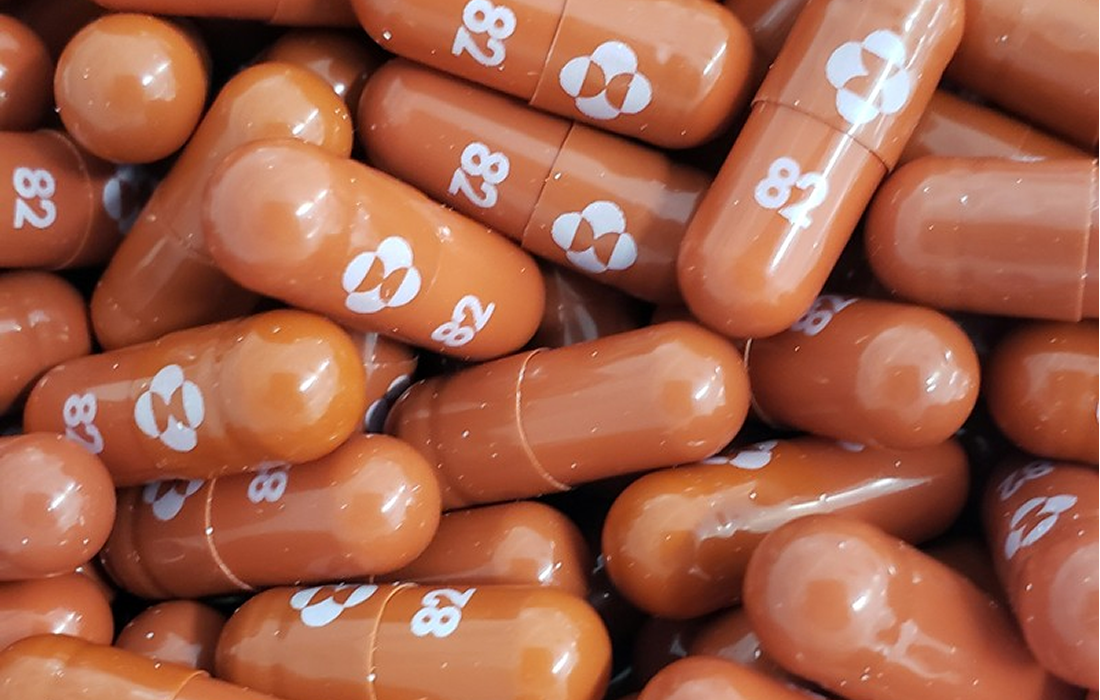COVID-19
New Oral Antiviral Drug for COVID-19 Treatment
The merck pill, which could become the first oral antiviral for COVID-19 treatment, Molnupiravir, forces the SARS-CoV-2 to mutate itself to death.
The pharmaceutical company announced last week that the antiviral medication they are developing can cut hospitalizations and deaths among people with COVID-19 by half. But the results haven’t been peer reviewed. Current authorized drugs are only available for intravenous administration or injected, which could make treating patients earlier on in their infection much easier and effective.
Molnupiravir was so effective in a phase 3 trial involving COVID-19-positive people at risk of severe illness that clinicians halted enrolment early. Whether this clinical trial success will translate into a global game-changer in the fight against COVID-19 isn’t yet clear.
The other therapies on offer against COVID-19, Gilead Science’s antiviral remdesivir and a monoclonal antibody cocktail from biotech firm Regeneron, must be administered intravenously or by injection. That makes it difficult for people to access the therapies before they are sick enough to land in hospital. And remdesivir is approved only for those who are already hospitalized with COVID-19.
What is Molnupiravir?
Is an investigational, orally administered form of a potent ribonucleoside analog that inhibits the replication of SARS-CoV-2, the causative agent of COVID-19. It mimics some of the building blocks of RNA.
When SARS-CoV-2 enters a cell, the virus needs to duplicate its RNA genome to form new viruses. Molnupiravir gets incorporated into burgeoning RNA strands and, once inside, wreaks havoc. Those RNA strands become faulty blueprints for the next round of viral genomes and anywhere the compound gets inserted and that conformational shit happens, a point mutation occurs. When enough mutations accumulate, the viral population collapses. The virus essentially mutates itself to death.
Molnupiravir has been shown to be active in several preclinical models of SARS-CoV-2, including for prophylaxis, treatment, and prevention of transmission. Additionally, pre-clinical and clinical data have shown molnupiravir to be active against the most common SARS-CoV-2 variants.
Clinical Trial
Their MOVe-OUT was a global Phase 3, randomized, placebo-controlled, double bind and multi-site study of non-hospitalized patients with laboratory confirmed mild to moderate COVID-19, at least one risk factor associated with poor disease outcomes, and symptom onset within five days prior to enter the study.
The primary objective was to evaluate the efficacy of molnupiravir compared to placebo as assessed by the percentage of participants who are hospitalized and/or die from the time of randomization through Day 29.
The most common risk factors for poor disease outcome included obesity, older age (>60 years), diabetes mellitus, and heart disease. To date, the Delta, Gamma, and Mu variants have accounted for nearly 80% of the evaluable cases in the trial.
An effective oral antiviral would be an incredible asset in the fight against COVID-19. It is not clear yet when this medication will be accessible to all.
Source:
https://www.merck.com/news/merck-and-ridgebacks-investigational-oral-antiviral-molnupiravir-reduced-the-risk-of-hospitalization-or-death-by-approximately-50-percent-compared-to-placebo-for-patients-with-mild-or-moderat/ (Interim Analysis of Phase 3 Study)
Cassandra Willyard (2021, Oct 9) Nature. Retrieved from:
https://www.medicalnewstoday.com/articles/whats-the-link-between-mental-health-and-allergies
Image from:
https://www.nature.com/articles/d41586-021-02783-1

